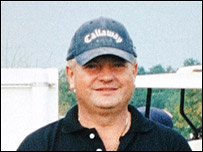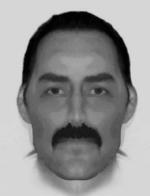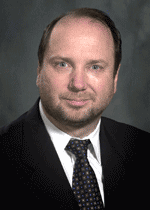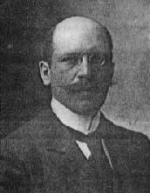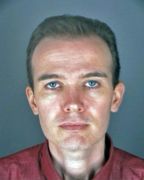As the hunt for the Suffolk serial killer continues and as the case unfolds I will be posting regular updates, particularly in relation to any psychological information or theories. I will also be including links to the latest police briefings and any other credible information sources.
If you would like to be alerted as soon as a new psychology of a serial killer post appears, you can do so by clicking on the orange RSS button (bottom left hand side of the page) to receive automatic content updates in My Yahoo!, Newsgator, Bloglines, and other news readers. Alternatively you can get instant updates via e-mail (see subscribe link, also bottom left hand side of page). You can also bookmark each update by clicking on the social bookmark this link that appears after each post.
Media Watch Headline
HeadlineKILLER WIL BE THINKING: THE GAME'S ON
Published13th December
Psychology aspectWritten by Mike Berry Criminal Psychologist From Manchester Metropolitan University
Key pointsPsychological ProfileWhite male, aged 25-40, works odd hours Will live, work, or have holidayed locally May meet prostitutes as part of his work.
Psychological opinionsPolice are hunting an exceptionally cold-blooded murderer with the potential to become, in the short term, Britain's most prolific serial killer.
What makes this man particularly terrifying is that he has killed two women before and then gone out with the deliberate intention to strangle.
He may well find killing face-to-face more personal and because he is in control he will find it particularly enjoyable.
Yesterday's discovery of two women's bodies close to main roads was unusual and worrying. It may indicate it was a bit rushed or he might be clever and goading the police.
He could be motivated by a desire for revenge on women or specifically prostitutes for a number of reasons.
He may have left some indication at the scene of the crime or more likely at the spot he disposed of the victims' bodies. If so, I would expect the killer to have left a sign, such as a cross, for the police by now.
The killer seems confident and organised, suggesting he may be an older man. And he also seems comfortable in the red-light district - he could be a regular punter and probably known to them.
He knows the area well - he either works, lives or comes to the area to play. In all five cases he has taken the women's clothes off. Is it that he is worried about DNA or has he taken them as a trophy? I would suspect he has taken jewellery such as rings or earrings.
He has taken great risks to dump the bodies in public because the area has been crawling with police. As a result, I think he is confident and incredibly arrogant to dump two bodies within a few hundred yards of each other for the police to find. It is rare behaviour.
WHY take the risk unless you are showing off? We are talking about a serial killer who will soon be as famous as any of the other serial killers, such as the Yorkshire Ripper.
He is organised and in control without any doubt at all. He has had the nerve to dump at least one body in view of a busy road.
The killer may be confident he will not be caught. He will be fascinated by the coverage of the case on TV and almost certainly watching the police appeals to the public for information and to him to give himself up.
He will believe: "I've been recognised as a killer, the police recognise they are dealing with someone who is good at what they do."' To commit five murders is very skilful. Most killers only ever kill one person. It is rare to kill twice and rare to kill up to five people in separate events in such a short time.
Profiling serial killers is never an exact science but it is possible to draw up a range of characteristics this man is likely to have. He will probably be between 25 and 40 - no one younger would have the maturity to kill five women. He will also be white, because virtually no serial killers are black or Asian. He is passionately driven by a fantasy almost as if he is following a film which is playing in his head.
But he is also calm and organised. He can transport a body in his car, in the boot or back seat covered up. He must have a reliable car because he cannot risk breaking down at night. He probably has a job because of the car and is able to make the girls think it is worth their while to take a ride with him.
If the killer is not single his job requires him to work irregular hours or shifts so that he does not have unexplained absences, particularly at night when the girls go missing. It is unlikely to be a nine to five job. It is quite likely he does not work in an office, factory or building, but on the streets part of the time. These girls work the streets and are good at spotting potentially dangerous customers, but this guy is getting under their radar.
One of the possibilities is that the killer is someone the girls felt comfortable with - a taxi driver, church worker, nurse or even a policeman. He is somebody who does not raise suspicion by being in a red-light district.
Links Click Here For The Latest Police Briefing
Click Here For The Latest Police BriefingThe following link from the BBC has information on each location in the murder trail and a profile of the victims.
http://news.bbc.co.uk/1/hi/in_depth/629/629/6175797.stm
For a free and comprehensive guide to the world of forensic psychology, including several pages dedicated to criminal profiling don't forget to visit the main forensic psychology website.
http://www.all-about-forensic-psychology.com/
